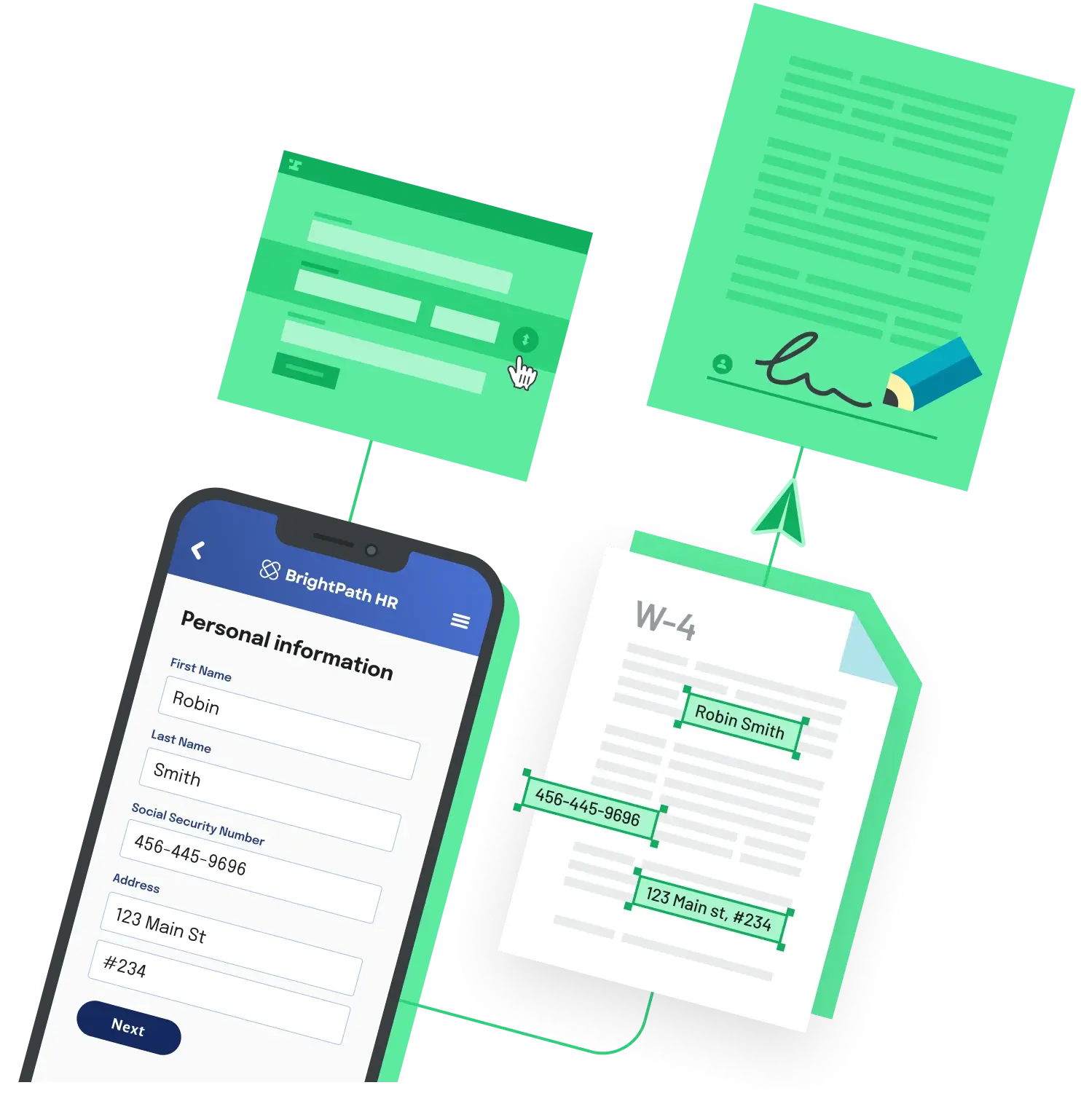Overview:
Filling out fields in a PDF before allowing users to edit and sign is a common requirement for industries like insurance, HR, and real estate. Pre-filling ensures initial accuracy, while allowing edits accommodates user preferences or last-minute changes. This approach is useful in scenarios like contract agreements, onboarding forms, and consent forms.
Recommended Solution:
Platforms like Anvil streamline this process with our user-friendly workflow that integrates PDF field editing and signing seamlessly. For developers, tools like iText (Java) and PDF.js (JavaScript) offer robust libraries for pre-filling and managing editable fields programmatically.
Popular Tools/Libraries/Methods:
1. Anvil:
- Use case: Streamlined document workflows with editable forms during signing.
- Advantages: Easy integration, robust automation for pre-filling and signing workflows, and no need for deep technical expertise.
- Disadvantages: Requires subscription for advanced automation features.
- How it works: Use Anvil’s platform to upload a PDF, map fields, pre-fill them with data, and allow recipient edits during signing.
2. iText (Java):
- Use case: Fully programmatic approach to managing PDF form fields.
- Advantages: High flexibility, suitable for bulk processing.
- Disadvantages: Steep learning curve for beginners.
- How it works: Pre-fill fields with iText's
PdfAcroFormAPI and set them as editable before flattening the document.
3. PDF.js (JavaScript):
- Use case: Web-based PDF manipulation.
- Advantages: Client-side rendering and editing capabilities.
- Disadvantages: Limited native signing features; requires integration with other tools.
- How it works: Pre-fill fields with JavaScript and allow users to edit them using interactive annotations.
Installation and Compatibility:
Anvil:
- Sign up.
- Upload your PDF or document, and map form fields.
- Use the API to pre-fill data and enable edits during the signing process with Interactive Signing.
iText (Java):
- Add iText to your project:
<dependency>
<groupId>com.itextpdf</groupId>
<artifactId>itext7-core</artifactId>
<version>7.2.3</version>
</dependency>2. Use the PdfAcroForm API to pre-fill fields and allow editing:
PdfDocument pdfDoc = new PdfDocument(new PdfReader("input.pdf"), new PdfWriter("output.pdf"));
PdfAcroForm form = PdfAcroForm.getAcroForm(pdfDoc, true);
form.getField("Name").setValue("John Doe").setReadOnly(false);
pdfDoc.close();PDF.js (JavaScript):
1. Include PDF.js in your project:
<script src="https://mozilla.github.io/pdf.js/build/pdf.js"></script>2. Render the PDF and allow field editing using form annotations.
Code Examples:
Pre-filling with Editable Fields in iText (Java):
PdfDocument pdfDoc = new PdfDocument(new PdfReader("input.pdf"), new PdfWriter("output.pdf"));
PdfAcroForm form = PdfAcroForm.getAcroForm(pdfDoc, true);
form.getField("Name").setValue("John Doe").setReadOnly(false);
form.getField("Date").setValue("11/19/2024").setReadOnly(false);
pdfDoc.close();Tool comparison
| Tool/Library | Performance | Ease of use | Licensing | Integration Options |
|---|---|---|---|---|
| Anvil | High | Easy | Paid (Subscription) | API/Platform |
| iText (Java) | High | Difficult | Paid (Commercial use) | Custom code |
| PDF.js | Medium | Moderate | Free (Open Source) | Web-based only |
Best Practices:
- Design for simplicity: Pre-fill only critical fields to reduce errors and improve user experience.
- Security: Encrypt sensitive data in pre-filled forms and secure the signing process with SSL.
- Testing: Test workflows thoroughly to ensure pre-filled fields and edits are saved correctly.
- Compliance: Ensure adherence to local laws (e.g., ESIGN Act in the U.S., GDPR in Europe).
Recap
For a seamless solution that includes pre-filling fields and allowing edits while signing, Anvil is a top choice due to its ease of use and robust capabilities. For developers, tools like iText offer flexibility for custom implementations. Depending on your technical expertise and budget, choose the tool that aligns with your needs.
Back to All Questions
